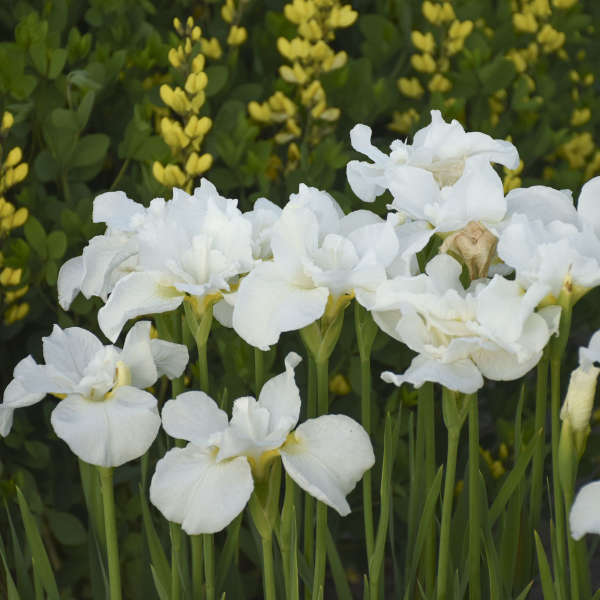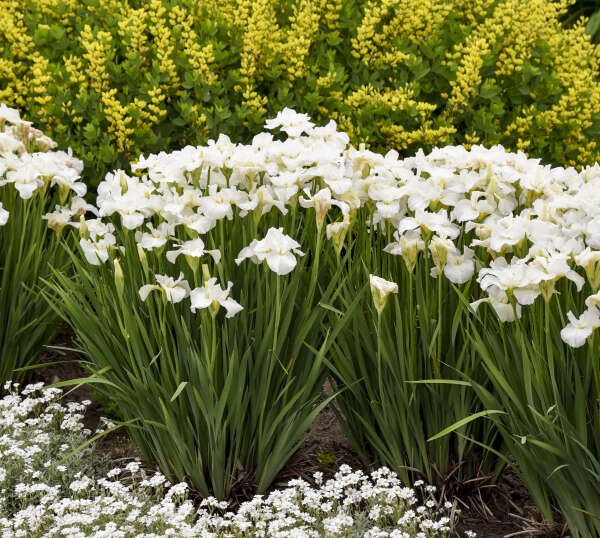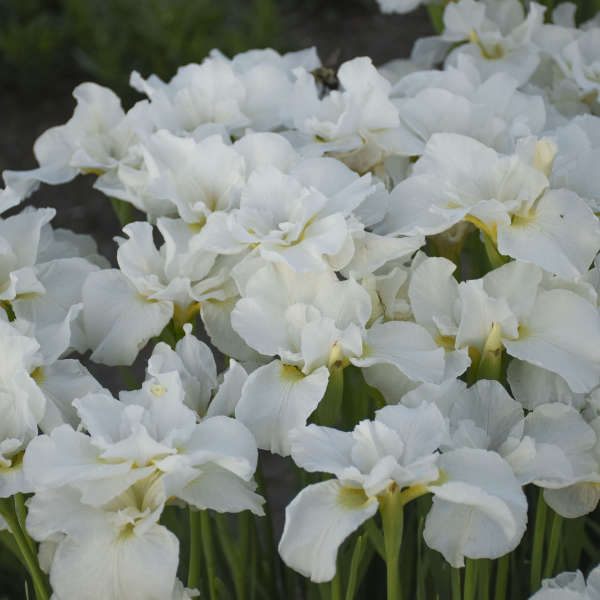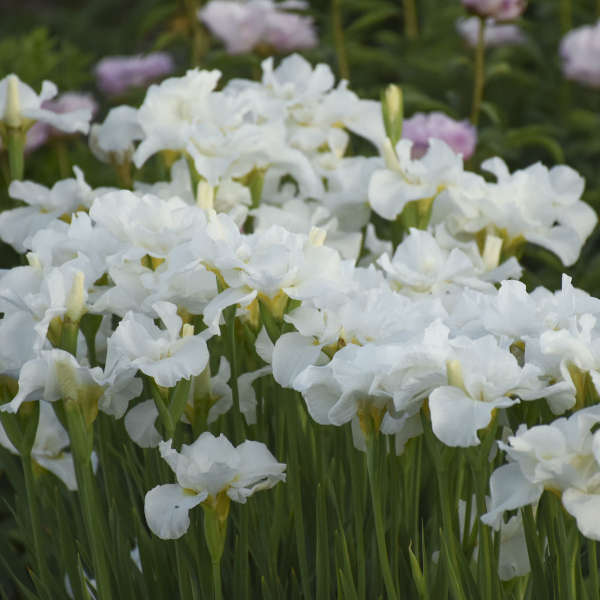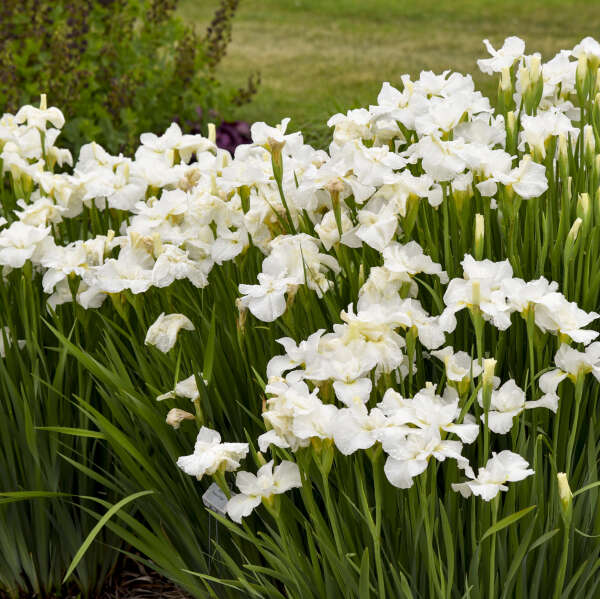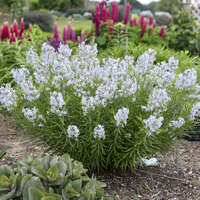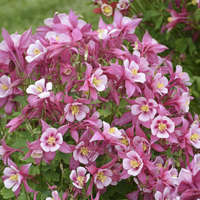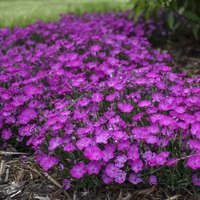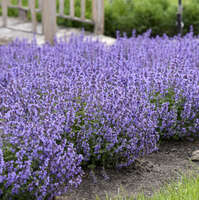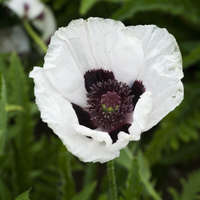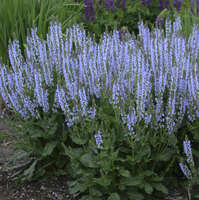Iris sibirica 'Swans in Flight'
Common Name: Siberian Iris
This later blooming white variety will certainly turn your head when it blooms in early summer. Extremely large, 5" ivory white flowers are wider and fuller than the classic 'White Swirl'. Lemon yellow signals put the finishing touches on an elegant plant. When planted in mass, it looks like a blanket of white flowers.
Siberian irises are haled for their elegant, delicate flowers and disease resistance. They perform admirably in the sunny to partially shady garden, but need plenty of water throughout the season to continue looking their best. In naturalized settings, they are particularly effective around water features. They can also be grown under Black Walnut trees since they are not effected by juglone. Siberian Irises bloom before Japanese Irises but after Tall Bearded Irises.
